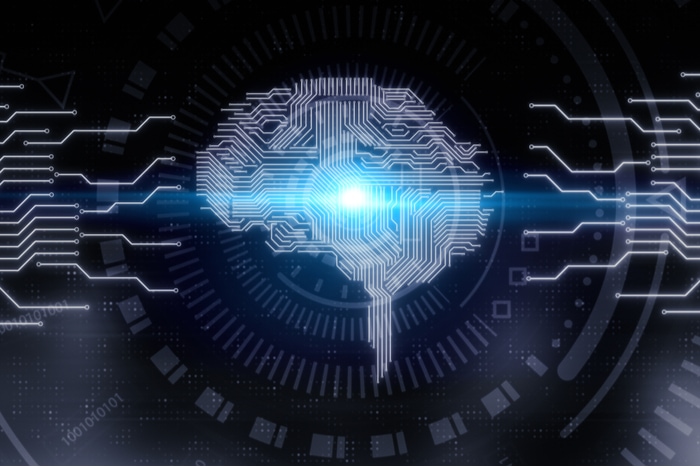Every industry is keeping a watchful eye on its future trends, and each of those discussions seems to inevitably mention artificial intelligence.
It’s for good reason.
Artificial intelligence or “AI” — a broad term for advanced technologies like automation, machine learning, and cognitive engagement — has real potential to transform the way we work.
Companies in all industries will increasingly use these technologies to increase overall productivity by freeing workers from routine tasks, allowing them to focus on high-payoff activities while giving them the tools to analyze data and enhance processes.
The momentum is growing. A 2018 Harvard Business Review study surveyed 250 executives on their companies’ use of cognitive technology, and found that three-quarters of them believe AI will substantially transform their companies within three years.
So in that case, what do you need to know about AI?
The way forward will be complicated, but here are some basic things you should understand about the AI transformation and how it could affect your company.
Artificial intelligence includes many different technologies
When we talk about “artificial intelligence”, we’re referring to a wide-ranging group of emerging and advanced technologies. Overall, we can say that AI includes the following technology groups:
- Robotics & cognitive automation, such as manufacturers using robotic process automation (RPA) to automate digital and physical tasks.
- Cognitive insight, such as using algorithms or big data analytics to detect patterns in vast volumes of data and determine their significance.
- Cognitive engagement, where companies use natural language processing chatbots, intelligence agents and machine learning to engage employees and customers.
Whether you’re talking about robotics, cognitive insight or cognitive engagement, the way we live, work and play is about to change.
It’s an evolution, not a revolution
Before we start imagining a world where people visit the mall and are helped by robotic store clerks, or where everyone’s jobs are replaced by machines, let’s take a step back.
It’s probably more accurate to say that AI will transform the world incrementally rather than turning it upside down. In other words, the wave will come through a long series of evolutions, rather than an dramatic revolution.
In many industries, big, earth-moving projects are called “moonshots.” In the AI world, moonshots are the large, transformative projects where robots and computers actually do human work. Just imagine going to a medical clinic where a computer can diagnose your illness.
Moonshots are exciting, but for every project that advances humankind, there will be thousands of smaller, practical projects most people won’t even notice. Many companies have started their AI journeys, and those transformative projects are still in the early stages. The road is long, and there will be many iterations in everyone’s AI journeys.
Artificial intelligence will be largely invisible
Most of these incremental projects will be largely unnoticed in most people’s day-to-day lives.
Here’s an example: if you buy your groceries at a large supermarket chain, there’s a chance that the company used an automated solution to ensure those shelves were stocked faster with fresh food. An automation system at the distribution center sorts the inventory and loads the trucks according to each store’s specific layout, ensuring efficiency when stocking the shelves. The people unloading the trucks, along with the customers buying the groceries, may not even know about these efficiencies, but it’s another example of how AI is all around us.
AI writer Thomas H. Davenport puts it a little more bluntly: “Like all utilities, AI will be supremely boring, even as it transforms the Internet, the global economy, the civilization.”
Artificial intelligence will augment rather than replace human capabilities
There tends to be a common fear that automated workplaces will replace human workers. It’s time to shift that perception.
AI performs tasks, not entire jobs. Most tasks completed by AI will improve small pieces of larger projects that already exist and are led by humans. For example, AI-driven machines will help by:
- Giving workers tools to make better decisions
- Freeing people from mundane tasks
- Relieving customer agents from answering repetitive questions
AI is about helping people work smarter, not stopping them from working altogether. In fact, companies will see the biggest performance gains when humans and smart machines collaborate.
A lot of the important progress comes from the place where people and technology come together — the “human-AI sweet spot” — in which employees are relieved of routine tasks so they can focus on high-payoff activities. As a result, information-driven sectors such as health care, financial services, accounting, and professional services will become more efficient.
Incorporating AI into our daily activities will also set the stage for future technology advancements. An article titled “Artificial Intelligence for the Real World” says: “Cognitive technologies are also the catalyst for making other data-intensive technologies succeed.” The list of such technologies includes autonomous vehicles, the Internet of Things (IoT), and mobile customer technologies.
Dip your toes into automation and integration
Admittedly, your small business may not be ready to implement AI technologies quite yet. But whatever your industry, it’s time to start embracing tools that allow for greater automation of tasks and integration of workflows.
A QuickBooks CRM like Method is a great starting point. By connecting your accounting, customer management, payment processing, emails, and more, you’ll immediately see the benefits of working smarter, not harder.
And as an added bonus — the more comfortable you can get with integrated technologies now, the better prepared you’ll be for the AI advances of the future.

